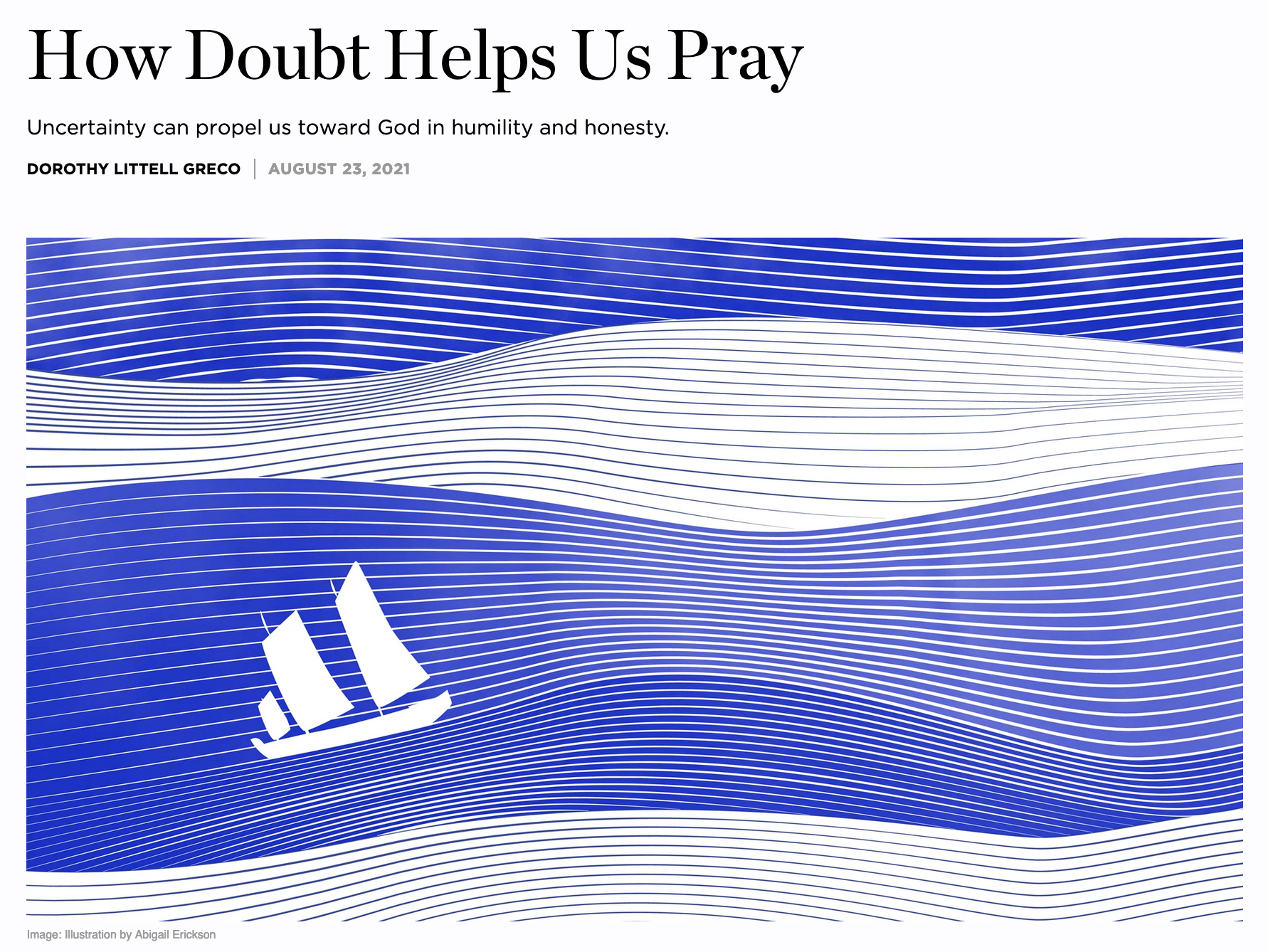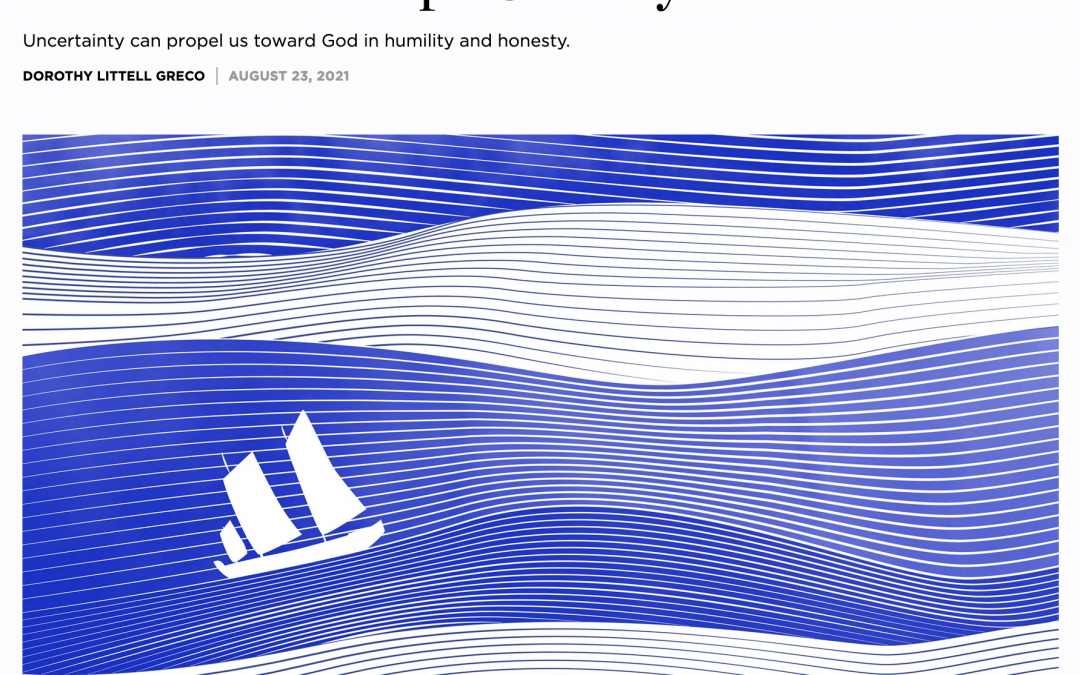
When doubt finds its way into our prayer life, we may assume we simply need to muster more faith. Or we may imagine that to overcome doubt, we need to acquire more knowledge. But the reality is we can’t fabricate faith and we will never fully comprehend God, no matter how much Scripture we memorize, how many seminary degrees we earn, or how many hours we pray. As Paul reminded the Corinthians, we see through a glass darkly (1 Cor. 13:12). We are limited creatures stuck in Earth time without the capacity to fully understand our own narrative, let alone God’s mysterious purposes or the Enemy’s nefarious schemes.
To some extent, our experience of doubt depends on how we perceive it. If we understand it to be, as poet Alfred Lord Tennyson jested, “Devil-born” or akin to an invader that breaches our defenses in order to deconstruct our faith, then doubt is to be avoided or denied at all costs. But that’s not the only vantage point.
“I think doubt and faith are not opposites,” says New Testament scholar Scot McKnight. “Doubt is often inherent to faith.” If we explore our doubt and trace it back to its source, it may expose our own false constructs about God or our feeble attempts to control him. In this way, doubt can actually propel us toward God in humility and deepen our relationship with him by inching our prayers toward greater honesty and intimacy.
To read the remainder of this article, please click this link to Christianity Today. (And if it fails to work, please LMK!)
